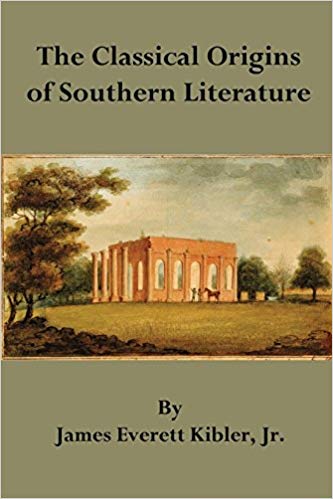|
The title to this post is also the title of a new book published by the Abbeville Institute and written by my friend and mentor Dr. James Everett Kibler, Jr., a poet, a literary critic, and fiction and non-fiction writer and professor emeritus of literature at the University of Georgia. Dr. Kibler documents in his erudite volume what Southern scholars and writers have lived out for generations, at least up to WWI: the South was steeped in the Classical tradition, which by the end of the 17th century had begun to wane among New England intellectuals. There seems, in fact, to be a nexus between the strong Classical tradition in the South and the orthodoxy which Southern Christian confessions maintained while their Northern counterparts fell into heterodoxy - neo-Arianism, Unitarianism and Universalism. After the War and Reconstruction, the Prussian/industrial educational system, utilitarian and secular, was systematically imposed on the South; yet, the Classical tradition and Christian orthodoxy held on, not waning to a measurable degree until WWI. Even after WWI, the influence of the Classical tradition remained strong among Southern intellectuals, best seen in the works of the Vanderbilt Agrarians/Fugitives and then in the Southern Renaissance which followed hard thereon. Southern symbols, totems and icons and Southern "ways" are indeed important and are worthy of our defense; yet, our Classical tradition and our Christian orthodoxy constitute the metaphysical bedrock of Southern culture. Unless these are quickened and lived out in our daily lives, making themselves manifest in how we relate to the Created Order, the defense of those other things which are markers of our "Southernness" becomes meaningless. If you have a heart for the Classical tradition, Christian orthodoxy and "things" Southern, you should read The Classical Origins of Southern Literature.
1 Comment
|
AuthorRobert Peters was born in the town of Natchitoches, Louisiana, the oldest settlement in the Louisiana Purchase Territory. He was, however, reared in the Republic of Pollock situated in the eastern march of Grant Parish, carved out of Winn Parish and Rapides Parish for the purposes of looting by carpetbaggers, a fact betrayed by the name. Archives
May 2023
|

